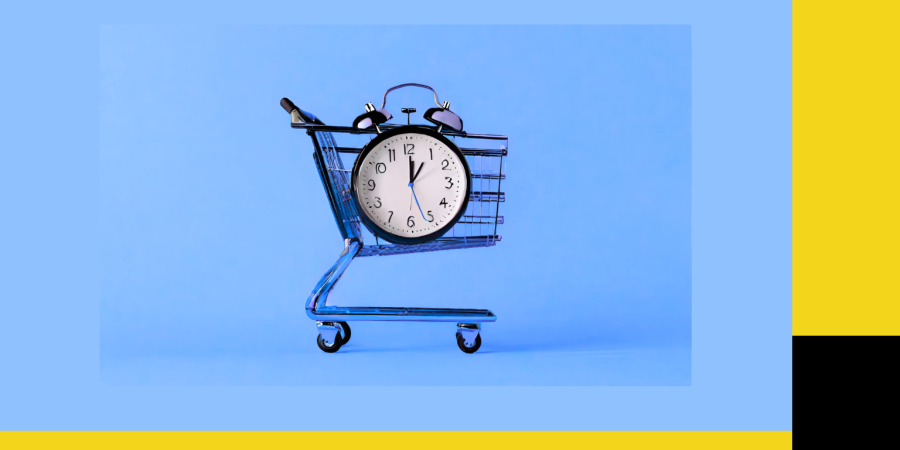You may have seen the option to pay for a product in installments when shopping online – these are called “buy now, pay later” plans. Here’s what you need to know before you agree to a buy now, pay later plan.
An important reminder
When you use a buy now, pay later plan, you are financing your purchase with credit. Responsible borrowing can be a good thing, but sometimes loans can get you in trouble. Before you make a decision on any credit product, there are some important things to think about.
What are buy now, pay later plans?
These plans allow you to use credit to pay for a product over time rather than all at once. This can give you the chance to purchase something you need and spread the payment over a period to fit your budget. However, it may lead to over-borrowing if you take on a debt that you can’t afford or that doesn’t fit your budget.
The two main types of buy now, pay later plans are:
- Equal payment plans. You make minimum payments by set dates until the full balance is paid off.
- Deferred payment plans. You must pay the full balance by a certain due date, but there are no set payment amounts.
Buy now, pay later plans: what you need to know
Like other financing options, there are important things to consider before you agree to enter into an agreement. With some information adapted from the Financial Consumer Agency of Canada (FCAC), here’s what you need to know.
1. You are financing your purchase with credit. This means you enter into an agreement with a financial service provider. The financial service provider may run a credit check before approving your application. Take some time to understand what this might mean for you, including whether the application itself might impact your credit score. Learn which types of credit checks affect your credit score.
2. There are several different types of payment models. Some use pre-authorized charges to your credit card, some can only be used for certain retailers, and others may be a personal loan that require you to apply. Each type will have different fees, interest rates, and terms and conditions. Make sure you know what type of payment model you’re agreeing to and what implications it could carry. Learn about the different payment models for buy now, pay later plans.
3. Some plans include fees and costly consequences for missed or late payments. The plan may offer a low, promotional interest rate of 0% to start. While this might sound appealing, keep in mind that if you miss a payment or don’t pay off the balance in time, the rate may increase from 0% to 37.99% or include costly fees, depending on your agreement. Determine if you can afford the higher interest charges and applicable fees if you miss a payment or can’t pay off the balance by the due date. Always read the fine print and know exactly what you’re getting into.
4. Unpaid debts can have a negative impact on your credit report. Missing payments or having a debt go to collections will impact your credit score. Your credit report and credit score are used by people and businesses to help make decisions about things like lending money to you, collecting a debt, or renting a property. Avoid overspending and relying on buy now, pay later plans if there’s a chance you won’t be able to make the payments or pay off the balance in time. Learn how debt impacts your credit report.
The main takeaway is to be fully aware of what you’re signing up for before agreeing to a buy now, pay later plan. Understand what kind of impact the fees, interest, or payment timeline could have on the total cost of the purchase or your overall credit. Make sure you read the fine print and are prepared to manage the payments. Learn more about the pros and cons of buy now, pay later plans with this information from the FCAC.
Curious about your rights when it comes to online purchases?
When you buy something online, you may be entering what’s called a “distance sales contract”. With these types of contracts, you may be entitled to certain cancellation and refund rights if you don’t get the product or service you paid for. Learn more about your rights with online purchases in BC.
Where to go for help
There are rules for financial products. If you have a complaint related to your buy now, pay later plan, contact the plan provider first. Depending on your agreement, you may also need to contact the retailer.
If those first steps aren’t successful, know that all federally regulated financial institutions must have a complaint-handling process in place. Learn how to file a complaint with your financial institution.
If your credit card provider is regulated provincially (like a credit union), you can make a complaint to the British Columbia Securities Commission.
About Consumer Protection BC
We’re a not-for-profit provincial regulator. The laws we oversee capture your rights when it comes to credit reporting, debt collection, payday loans, high-cost loans, and certain aspects of debt repayment services. Find out more about us and the other industries and transactions we oversee by exploring our website.
Learn more about your rights when it comes to debt and borrowing.
More debt and borrowing resources
Managing debt
How to make a plan to manage your debt
Your debt relief options in BC
The impact of debt on your credit report
How to improve your credit score
How to build healthy financial habits
Debt collection
How to stop collection calls
What to do if it’s not your debt
The rules debt collectors must follow in BC
How to dispute a debt
Borrowing wisely
Things to think about before you take out a loan
Understanding the cost of your loan
The rules for payday lenders in BC
The risks of borrowing money from unlicensed lenders
Buy now, pay later plans: what you need to know
Tell us what you think for a chance to win!
The information above is part of a consumer education initiative on debt and borrowing in BC and we want your input!
By completing the survey, you will be entered to win one of two $300 prizes and you’ll support consumer education in the province. Your feedback will help us fine-tune our educational resources so we can continually improve and help more people make informed debt choices in BC.




